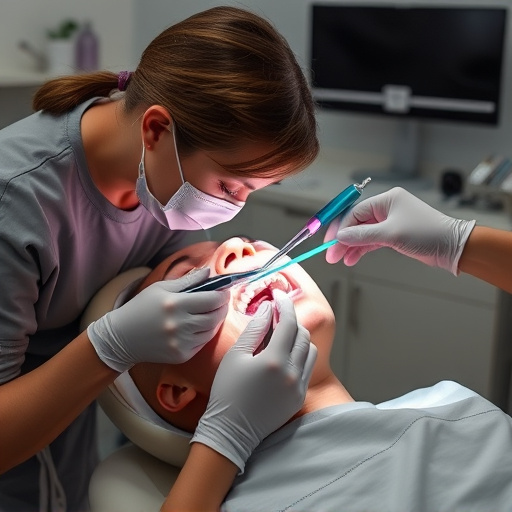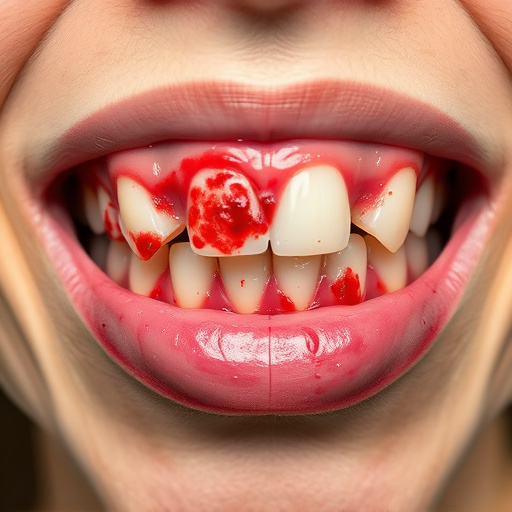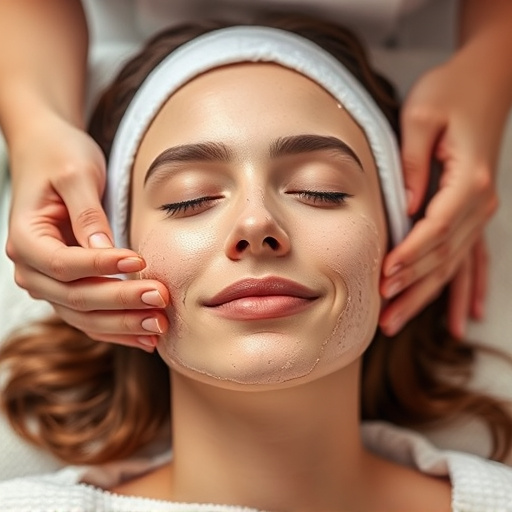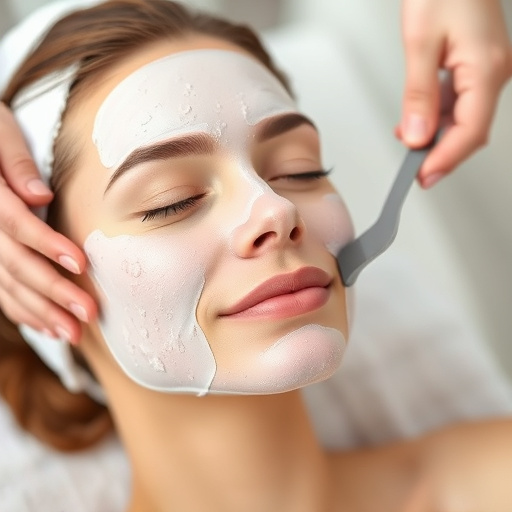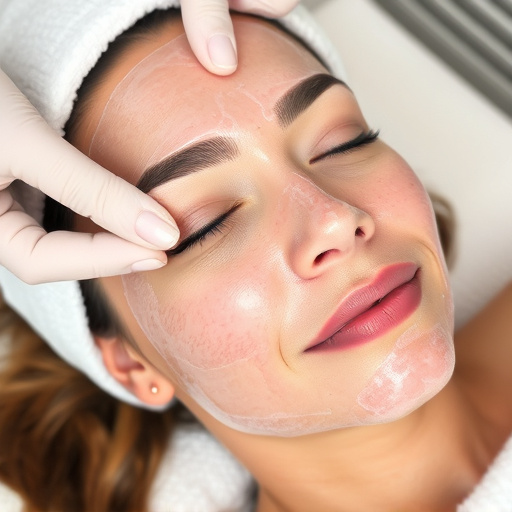Psoriasis skin therapy involves a combination of prescription medications (corticosteroids, vitamin D analogs, biologic agents, retinoids), natural remedies (aloe vera, shea butter), and complementary procedures (microneedling, chemical peels, facials) to manage symptoms and reduce flare-ups. Personalized approaches target specific immune responses and skin cell production for lasting results in promoting overall skin health.
Psoriasis skin therapy is a comprehensive approach to managing this chronic autoimmune condition. Understanding the causes and symptoms of psoriasis is the first step towards effective relief. This article delves into two primary avenues for psoriasis treatment: prescription medications known for their potency, and natural remedies offering gentle yet potent options. Explore these paths to discover tailored solutions for your skin.
- Understanding Psoriasis: Causes and Symptoms
- Prescription Treatments for Effective Relief
- Exploring Natural Remedies and Topical Options
Understanding Psoriasis: Causes and Symptoms
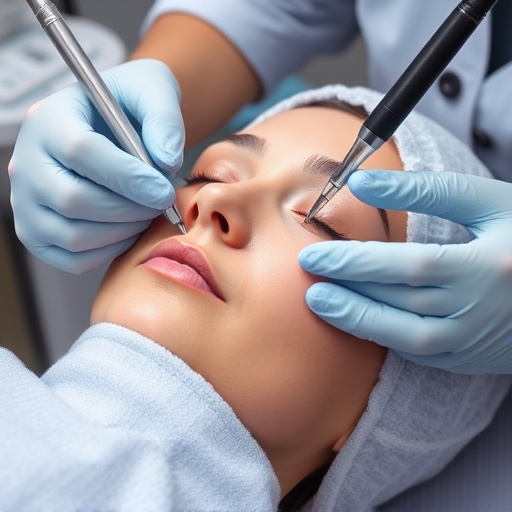
Psoriasis is a chronic autoimmune condition that affects the skin and sometimes the joints. It’s characterized by red, scaly patches on the skin, which can be uncomfortable and painful. The causes of psoriasis are complex, involving an overactive immune system that speeds up the skin’s cell replacement cycle. This results in a buildup of cells on the surface of the skin, leading to those distinct scales. Symptoms vary from person to person but commonly include itching, burning, and soreness beneath the scales. These patches can appear anywhere but often show up on the elbows, knees, scalp, and lower back.
While there’s no cure for psoriasis, various treatment options, including prescription medications and natural remedies, can help manage symptoms and reduce flare-ups. Professional skincare is essential in developing a personalized approach to psoriasis skin therapy. Medical spa services like microneedling therapy have gained popularity due to their potential to stimulate the skin’s healing process and improve overall skin texture and appearance.
Prescription Treatments for Effective Relief
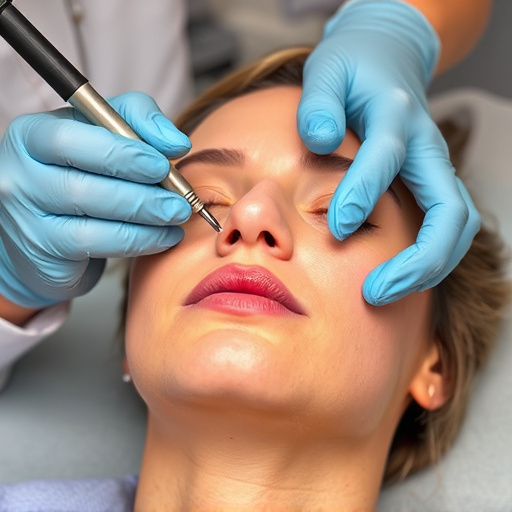
When it comes to psoriasis skin therapy, prescription treatments offer a powerful arsenal for managing this persistent condition. Dermatologists often prescribe topical medications, such as corticosteroids and vitamin D analogs, which can significantly reduce inflammation and slow down skin cell growth. These options are convenient and easy to apply at home, making them a first-line defense for many patients.
For more severe cases, systemic treatments like biologic agents and retinoids may be prescribed. Biologics target specific proteins involved in the immune response, while retinoids help regulate skin cell production. Additionally, procedures like chemical peels and customized facials can provide targeted psoriasis skin therapy, exfoliating the top layer of skin to reduce plaque buildup and restoring a healthier complexion. These treatments work hand-in-hand with topical medications to achieve lasting results, promoting overall skin health and a clearer, more comfortable skin surface.
Exploring Natural Remedies and Topical Options
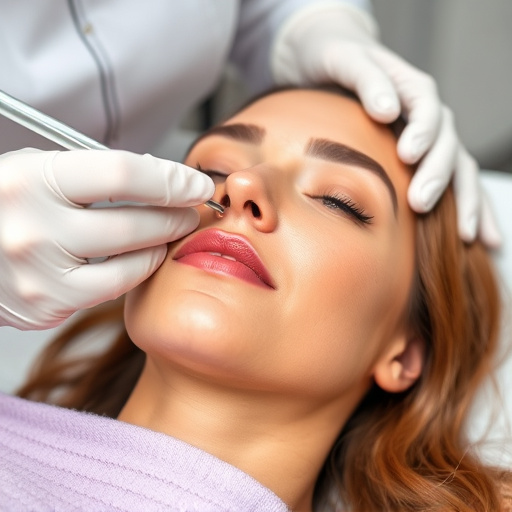
When it comes to psoriasis skin therapy, many individuals are turning to natural remedies and topical options as alternative treatments alongside prescription medications. This shift towards holistic approaches is driven by a desire for gentler, more personalized solutions to manage the symptoms of psoriasis effectively. Natural remedies often focus on soothing and hydrating the skin, using ingredients like aloe vera, shea butter, and essential oils known for their anti-inflammatory properties. These topical applications can provide significant relief from itching, redness, and flaking associated with psoriasis.
In addition to natural remedies, customized facials have gained popularity as a luxurious yet effective psoriasis skin therapy. Hydrating facials, designed to deeply nourish the skin, can help restore moisture levels often depleted by the condition. Meanwhile, specialized treatments that target specific concerns, such as wrinkle reduction techniques, offer both aesthetic benefits and potential relief from psoriasis-related discomfort, especially in areas like the face where skin sensitivity is higher.
Psoriasis skin therapy doesn’t have to be one-size-fits-all. By understanding your specific needs, you can choose from a range of effective options, including prescription treatments and natural remedies. Whether you prefer medical intervention or a more holistic approach, there’s a psoriasis skin therapy that can help you achieve clear, healthy skin.


